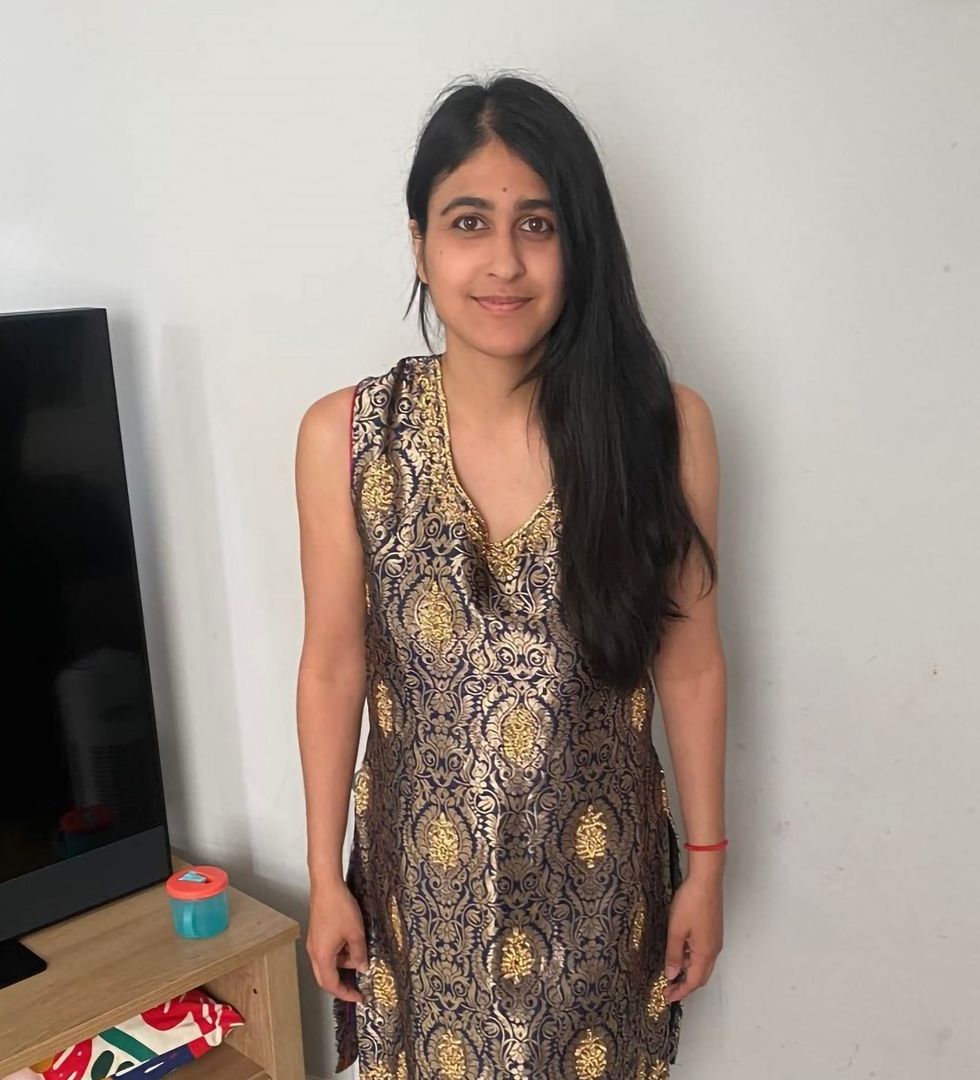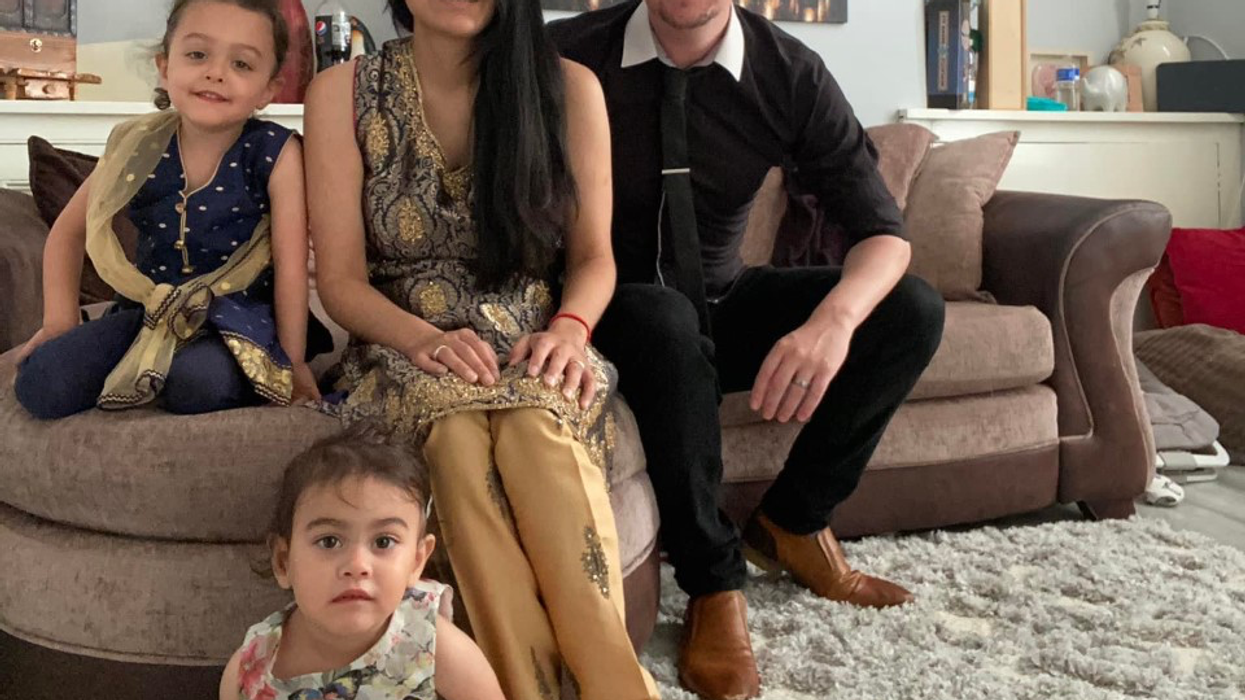THOSE impacted by the devastating loss of a baby often have nowhere to turn when dealing with the trauma and complex challenges.
This silent pain is perhaps more amplified within the south Asian community. One of those affected was Amneet Kaur Graham, when she fell pregnant with daughter Willow and had a missed miscarriage in September 2017. (Missed miscarriage occurs when the baby dies in the womb but the mother shows no symptoms.)
She turned that heartbreak into an inspiring journey that has led her towards making a real difference to those who have been faced with the same trauma. She has written a book detailing her experiences and founded the charity Willow’s Rainbow Box trust, which is an initiative that supports families on the same anxious journey. The charity supports women, birthing people and families experiencing pregnancy following a loss through miscarriage, stillbirth, or neonatal death.
Eastern Eye caught up with the inspiring British campaigner to discuss her heart-breaking loss and how it led her on a transformative journey. She also gave advice to those who have lost a baby, including husbands.
Tell us about your tragic miscarriage?
I had a missed miscarriage in September 2017. My body continued to be pregnant, but when we got to a scan to see our baby we were told there was no heartbeat detected. This was devastating for myself and my husband, and a day we will never forget. We found out at a private scan, so had an agonising few days wait to see the early pregnancy unit.
How did you cope, and did you get much support during the ordeal?
We found it really difficult to cope – there isn’t really anything that helps at that moment in time. We received a memory box at our hospital via the charity 4Louis. We didn’t really receive anything from the NHS. My employer paid for me to have private counselling.
What was the starting point of launching your charity and tell us about it?
We fell pregnant again in March 2018. It was full of anxiety as the magic of pregnancy had been taken away by our loss. I felt I didn’t fit in anywhere for support. I couldn’t go to a baby loss group for support as I was pregnant again. When we had Willow in November 2018, I decided to create something for others to give them the support I didn’t have. The charity Willow’s Rainbow Box was born in 2019 and supports families that are going through pregnancy after loss.
Tell us about your book Understanding South Asian Baby Loss?
As a south Asian woman, I felt there were some experiences and feelings unique to our culture. I felt baby loss was not widely spoken about in south Asian communities due to associated stigma, so I wrote this book to help break the silence and normalise discussion about baby loss.
Did you learn anything new while writing it?
I listened to lots of different stories and experiences when writing this book. I learnt that we are all in this together even though in our communities it feels isolating. I learned a lot more about the impact of intergenerational trauma on families, mindset, and behaviour.
Do you think baby loss is still a taboo issue in the south Asian community?
I feel like the topic is being more openly spoken about, but there is still a long way to go. I am assured by the different organisations and individuals speaking out that we will get to a point where it is much less of a taboo.
What key changes would you like to see within the south Asian community when it comes to baby loss?
I would like to see support being offered in community hubs and places of worship. It would be good to see this topic spoken about without hesitation or fear of stigma.

What advice would you give women who have experienced baby loss during a pregnancy?
It is a difficult journey, and all feelings are valid. Sit with your grief and know that grieving is acceptable and a normal response to baby loss. If you are going on this journey with a partner, take time to comfort each other and keep communicating. Look out for support groups and charities online who can help you.
What about those people who may have lost a young infant?
My advice is the same. Take time and don’t feel pressured to see too many people straight away. Take your time deciding on how to remember your baby or how to say goodbye.
What would you tell a husband or family member of a woman who has experienced baby loss?
This was huge for me. I absolutely believe husbands and family members need support too. Baby loss affects everyone in the family unit. Just as pregnancy and the birth of a baby are family events, baby loss is also the same. I would tell a husband or family member to also ask questions to healthcare staff if they are unsure of anything. They can also access support from a variety of charities. Don’t feel pressured to have to be ‘the strong one’ – your feelings and grief are valid too.
Tell us about the work you do now about helping people on their reproductive journey?
My job is as project manager of the Community of Cultures Project. This is a national project owned by Sheffield Maternity Cooperative. We offer safe support spaces, advice, and access to specialists for people from black, Asian and ethnic communities on their reproductive journey. At the moment, I am focussing on creating spaces to explore the fertility journey, baby loss and abortion.
What are your hopes for the future?
My hopes are to make a real difference in the south Asian community and to see this topic being talked about more openly within the community. I would also like to see more baby loss organisations and healthcare organisations sharing stories and providing support for people from south Asian communities.
Visit: www.willowsrainbowbox.co.uk













